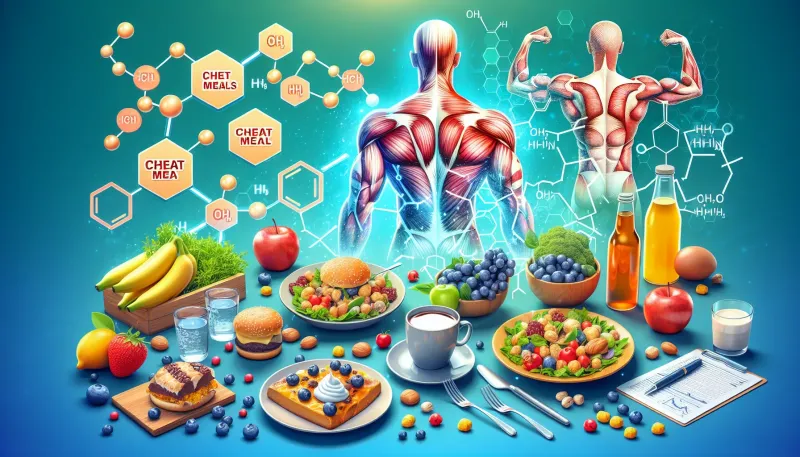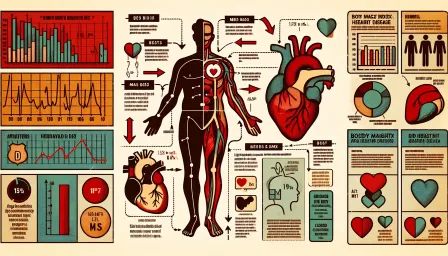How Cheat Meals and Hormone Regulation Work Together for Optimal Health

Discover the science behind cheat meals and hormone regulation and learn how they can work together to enhance your health and fitness journey.
Introduction
In the world of fitness and nutrition, cheat meals often come up as a topic of debate. Some view them as a necessary indulgence, while others warn against their potential pitfalls. However, a lesser-known aspect of cheat meals is their relationship with hormone regulation. Understanding how cheat meals and hormone regulation work together can provide insights into achieving optimal health and maintaining a balanced lifestyle.
The Science of Hormone Regulation
Hormones are chemical messengers that play a vital role in numerous bodily functions, including metabolism, appetite control, and energy balance. Key hormones such as insulin, leptin, ghrelin, and cortisol are particularly important in regulating these processes.
Insulin
Insulin is responsible for managing blood glucose levels by facilitating the uptake of glucose into cells. High-carbohydrate foods typically trigger insulin release, which helps maintain energy levels and prevent spikes and crashes in blood sugar.
Leptin
Leptin, known as the "satiety hormone," regulates energy balance by inhibiting hunger. It is produced by adipose (fat) tissue and signals to the brain that the body has enough energy stored, thus reducing appetite.
Ghrelin
In contrast to leptin, ghrelin, often referred to as the "hunger hormone," stimulates appetite. Its levels increase before meals and decrease after eating, signaling to the brain when the body needs food.
Cortisol
Cortisol, a stress hormone, plays a role in metabolism and the body's response to stress. Chronic stress and elevated cortisol levels can lead to increased appetite and cravings, particularly for high-calorie foods.
The Role of Cheat Meals
Cheat meals are pre-planned indulgences that allow individuals to enjoy their favorite foods without derailing their overall health and fitness goals. When used strategically, cheat meals can offer several benefits:
Psychological Benefits
One of the primary advantages of cheat meals is the psychological relief they provide. Strict dieting can be mentally taxing, leading to feelings of deprivation and potential burnout. Allowing occasional indulgences can help sustain long-term adherence to a healthy eating plan by reducing cravings and preventing binge eating.
Metabolic Benefits
Cheat meals can also offer metabolic advantages. Consistently low-calorie diets can cause the body's metabolic rate to slow down as it adapts to reduced energy intake. Introducing a high-calorie cheat meal can boost metabolism by temporarily increasing calorie intake, thereby preventing the metabolic rate from slowing.
Connection Between Cheat Meals and Hormone Regulation
The interplay between cheat meals and hormone regulation is complex yet fascinating. Here is a look at how cheat meals can influence key hormones:
Leptin and Metabolic Rate
Prolonged calorie restriction can lead to lower leptin levels, signaling to the body that energy stores are low and potentially reducing metabolic rate. A cheat meal, typically higher in calories and carbohydrates, can temporarily elevate leptin levels, sending a signal to the brain that energy levels are sufficient, which can help restore metabolic rate.
Insulin Sensitivity
Insulin sensitivity is crucial for maintaining stable blood sugar levels. While a consistent diet is necessary for sustaining insulin sensitivity, a occasional cheat meal can enhance insulin response due to the sudden intake of carbohydrates, prompting effective glucose uptake and storage.
Ghrelin and Appetite Control
Ghrelin levels increase with dieting and can lead to heightened hunger. By allowing for a periodic indulgence, a cheat meal can reduce ghrelin levels, curbing excessive hunger and cravings, and making it easier to stick to a healthy eating plan over the long term.
Cortisol Reduction
Stress is a major factor that can disrupt hormone balance. Engaging in cheat meals can reduce the psychological stress associated with strict dieting, thereby lowering cortisol levels, and helping maintain a healthier hormonal balance overall.
Implementing Cheat Meals for Optimal Health
To maximize the benefits of cheat meals while maintaining hormonal balance, consider the following strategies:
Plan Ahead
Schedule cheat meals in advance rather than spontaneously indulging, which can help control portion sizes and prevent overconsumption. Planning allows you to enjoy your favorite foods without guilt or regret.
Frequency and Portion Control
Limit cheat meals to once a week or once every two weeks, and be mindful of portion sizes. Overindulgence can negate the metabolic and psychological benefits, leading to setbacks in your health and fitness journey.
Balance with Nutrient-Dense Foods
Ensure that the majority of your diet consists of nutrient-dense, whole foods. The occasional cheat meal should complement a healthy diet rather than replace it. This balance is essential for sustaining overall health and well-being.
Listen to Your Body
Pay attention to how your body responds to cheat meals. If you notice negative effects, such as digestive discomfort or feelings of lethargy, adjust the frequency and types of foods included in your cheat meals.
Conclusion
Cheat meals and hormone regulation can work synergistically to support optimal health and well-being. By understanding the science behind hormone regulation and strategically incorporating cheat meals into your dietary plan, you can enjoy the best of both worlds: indulgence and sustained progress towards your health goals. Remember, balance and mindfulness are key to leveraging the benefits of cheat meals while maintaining overall hormone balance.



























